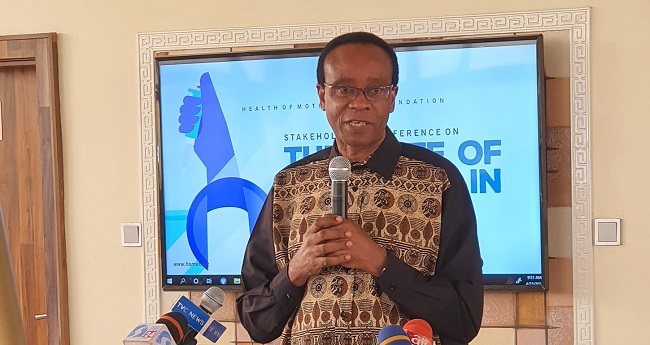The Registered Trustees of Health of Mother Earth Foundation (HOMEF) have filed a suit challenging a provision of the Plant Variety Protection Act 2021 for inconsistency with provisions in the Nigerian Constitution.

The originating summons with suit number: FHC/ABJ/CS/815/2021 is filed at the Federal High Court Abuja suing The Federal Republic of Nigeria, the Attorney General of the Federation, and the Minister of Agriculture and Rural Development.
The Plaintiff, represented by the Law firm, Chido Legal Consult in the originating summons signed by Reuben Chakku Esq., counsel in chambers, seeks a declaration that section 43(2) of the Plant Variety Protection Act 2021 is illegal, invalid, null and void and contrary to the letters and spirit of section 6 and section 36 of the 1999 Constitution of the Federal Republic of Nigeria (as amended in 2011).
Also, the suit seeks a declaration that the powers of the court to hear matters arising from the decision of the Minister of Agriculture and Rural Development in administering provisions of the Plant Variety Protection Act 2021 is sacrosanct.
The plaintiff wants an order deeming the said section 43(2) of the Plant Variety Protection Act 2021 as unconstitutional and unenforceable. In addition, they seek an order of perpetual injunction restraining the 3rd defendants by themselves, their agents, servants, workmen or otherwise whatsoever from carrying out any activity or further activity pursuant to the section 43(2) of the Plant Variety Protection Act 2021.
In a statement made available to EnviroNews on Friday, August 13, 2021, Nnimmo Bassey, the Director of HOMEF, noted that the Plant Variety Protection (PVP) Bill that was signed by the president in May 2021 would hitherto allow Nigeria join the International Union for the Protection New Varieties of Plants (UPOV).
According to Bassey, UPOV is a patent driven system formulated without the participation of African countries and designed by countries where agriculture is a business rather than a way of life. He added that such countries have just a tiny fraction of their population involved in agriculture which is of the industrial type as opposed to what we have in Nigeria.
Akinbode Oluwafemi, Director at Corporate Accountability and Public Participation for Africa (CAPPA), condemned the criminal sanctions in the Act on farmers if they duplicate or share seeds registered under this law, explaining that our farmers will mostly not know the difference between these seeds as it is common practice to share and reuse seeds in our communities.
Other issues with the PVP law highlighted in the statement include the poor public consultation in the process that led to the passage of the bill; and the stifling of farmer’s right to seed.
According to the Food Sovereignty Coordinator at Friends of the Earth Nigeria/Africa, Mariann Bassey-Orovwuje, Nigeria does not need to join UPOV-91; what Nigeria needs is a sui generis law that is based on its peculiar agriculture system and socio-economic context.
